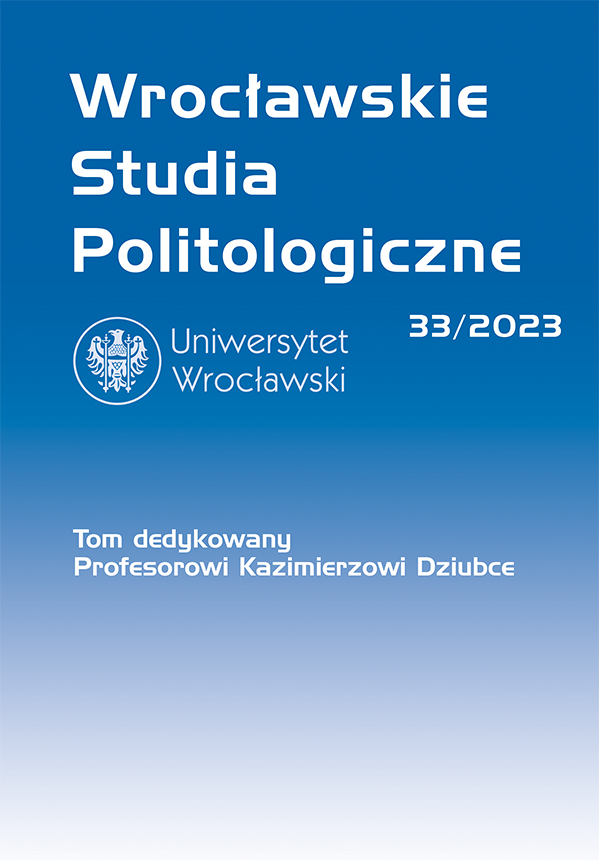Konserwatyzm — naród, tradycja, przesąd
Conservatism — nation, tradition, prejudice
Author(s): Konrad WandowiczSubject(s): Political behavior, Politics and society
Published by: Wydawnictwo Uniwersytetu Wrocławskiego
Keywords: conservatism; customs; tradition; prejudices; prescriptions; myths; cultural codes;
Summary/Abstract: Culture, formed by an infi nite number of means, goals, functions, values and patterns of behaviour, is theresult of conscious and unconscious social acceptance or lack of acceptance of its elements. Undoubtedly,the language we use creates an image of the world, but it is also a product of the patterns of behaviour andnon-verbal signs present in the world of culture. In response to the expansion of individualism and liberalrationalism, conservatism tried to emphasise the existence of that which is collective and unconscious. Th eEnlightenment brought with it a growing wave of changes in worldviews and customs, perceived by conserv-atism as a threat to the previous order and eternal values. Conservatism is characterised by an emphasis onthe irrational area of forces in the life of the state, where the state is understood as completely supra-rational,subject only to the action of traditionally inherited instincts, spiritual forces, and the spirit of the nation.Social order is the work of the “democracy of the dead”, the sum of proven wisdom, considered opinions,and the experience of many generations. Tradition is the most important factor integrating a community,whose prosperity does not depend on individual achievements of reason (for its potential is limited) but onthe intellectual achievements of generations. In this context, social order is shaped by authority, customs,religion, spiritual ties, and traditional family ties — as opposed to force, decrees, ideology, and contractualrelationships. It is a common belief amongst conservatives that nationalised education, even if that is notits intended purpose, fulfi ls the function (not so much from the educational angle, but from a pastoral one)of popularising Enlightenment ideas and forming a “progressive” New Man. In this way, it has become oneof the causes of the destruction of culture. Th e concept of tradition is connected with the concept of preju-dice, which is the wisdom of the illiterate. Prejudice, i.e. a judgment made earlier and its institutionalisedprescription at the social level, are taken from the authority of tradition. It is the collective wisdom of gener-ations transformed into customs, rituals, norms, rules, institutions, and structures.
Journal: Wrocławskie Studia Politologiczne
- Issue Year: 2023
- Issue No: 33
- Page Range: 55-74
- Page Count: 20
- Language: English

